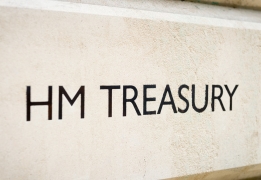Archived article
Please note that tax, investment, pension and ISA rules can change and the information and any views contained in this article may now be inaccurate.

While the Chancellor had previously made clear the furlough scheme could not continue on the never-never, removing all support just as the UK enters a new – albeit less severe - national lockdown would have risked crippling sectors of the economy which rely on people going out and travelling to work.
The new Jobs Support Scheme moves away from the emergency ‘furlough’ lifeline and aims to support only ‘viable’ employment. Employers will be able to reduce the hours employees work by up to 2/3rds, with the Government covering the difference.
While this might be less generous than the furlough scheme, it at least gives some support to employees and valuable help to businesses hit hardest by lockdown measures.
In addition, Sunak announced beefed up business loan schemes and tax cuts designed to ease the cashflow pressure on firms struggling during the pandemic. In particular, the tourism and hospitality sectors will now benefit from a reduced 5% VAT rate until 31 March.
Taken together, these measures should help ease the pressure currently being felt by businesses and workers up and down the country. However, whether it is enough to prevent a surge in unemployment as we head into winter remains to be seen.
Paying the costs of covid-19
The Government is still in the emergency phase of its response to the pandemic, attempting to minimise deaths while also keeping the economy afloat. It therefore makes sense to push back the Budget until the waters are calmer and the future a little less uncertain.
However, given borrowing was already forecast to be around £300 billion higher in 2020/21 than anticipated before covid-19 hit – and that is before this new support package was accounted for – it is inevitable that at some point the Government will have to address the question of how all this will be paid for.
The hope will be that a rapid economic bounceback driven by improved testing and the development of a vaccine might do some of the legwork. But this will also likely need to be coupled with difficult decisions on taxes and state spending.
Various ideas have already been floated in this regard, including raising capital gains tax, scrapping the state pension triple-lock and scrapping higher-rate pension tax relief.
As policymakers weigh these difficult decisions, it will be important to strike a balance and consider the implications any interventions might have on the fragile retirement savings culture being built in the UK.
Among the many lessons to come out of this pandemic, one of the key ones is that millions of people were financially unprepared for such a profound economic shock. Encouraging more people to save – both for the short and long-term – therefore needs to be front-and-centre as cost saving measures are debated.
These articles are for information purposes only and are not a personal recommendation or advice.

